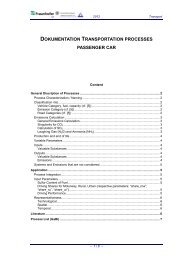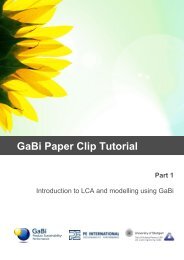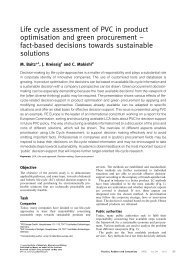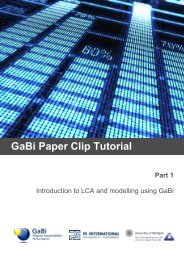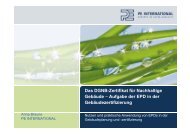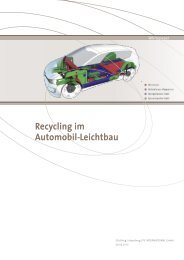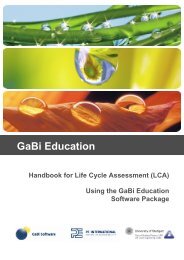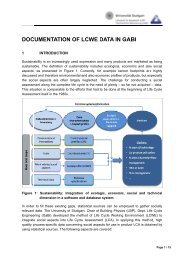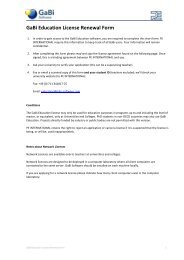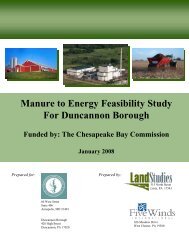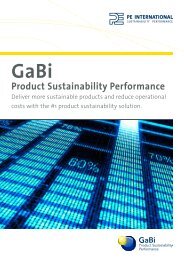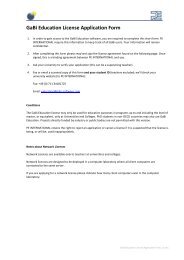GaBi Education - GaBi Software
GaBi Education - GaBi Software
GaBi Education - GaBi Software
Create successful ePaper yourself
Turn your PDF publications into a flip-book with our unique Google optimized e-Paper software.
Procedure<br />
In most cases there are several quantities associated with a flow. New quantities can be<br />
created in order to describe a special property of a flow.<br />
You will also notice the LCC tab. LCC stands for Life Cycle Costing and refers to a<br />
methodology that allows you to calculate the costs related to the life cycle of the system<br />
being studied. On the LCC tab economical quantities, such as the price can be defined for<br />
the flow.<br />
At this stage we do not need to go deeper into quantities. It is enough to understand that<br />
<strong>GaBi</strong> uses this information to calculate the potential environmental impact of the analyzed<br />
system.<br />
9. You can close the „Natural gas‟ flow window.<br />
3.4 Starting a project<br />
You are going to construct a model of a steel paperclip. We already did some research on<br />
the paper clip, defined the goal and scope definition and qualitatively described the paper<br />
clip life cycle. Let´s convert all this information into a new <strong>GaBi</strong> project.<br />
10. Click on „Projects‟ in the object hierarchy and start a new project by right clicking<br />
in the display area on the right.<br />
11. Name this project „Life Cycle Steel Paper Clip.‟<br />
12. Click „Activate project.‟<br />
Once the project is activated, all newly created processes, plans and flows will be saved<br />
under this project. This makes it much easier to find all the relevant information when you<br />
open the project in the future. It is a good idea to work with projects to keep your LCA’s<br />
organised.<br />
13. Close the project window.<br />
31



